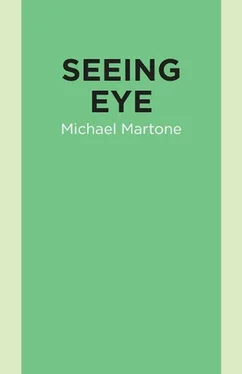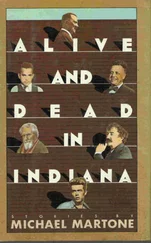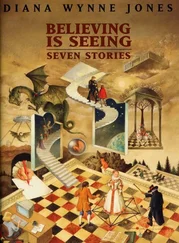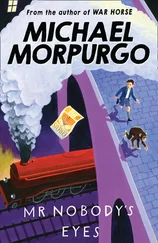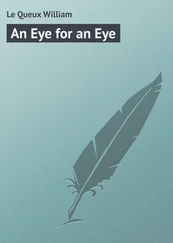Michael Martone - Seeing Eye
Здесь есть возможность читать онлайн «Michael Martone - Seeing Eye» весь текст электронной книги совершенно бесплатно (целиком полную версию без сокращений). В некоторых случаях можно слушать аудио, скачать через торрент в формате fb2 и присутствует краткое содержание. Год выпуска: 2013, Издательство: Dzanc Books, Жанр: Современная проза, на английском языке. Описание произведения, (предисловие) а так же отзывы посетителей доступны на портале библиотеки ЛибКат.
- Название:Seeing Eye
- Автор:
- Издательство:Dzanc Books
- Жанр:
- Год:2013
- ISBN:нет данных
- Рейтинг книги:5 / 5. Голосов: 1
-
Избранное:Добавить в избранное
- Отзывы:
-
Ваша оценка:
- 100
- 1
- 2
- 3
- 4
- 5
Seeing Eye: краткое содержание, описание и аннотация
Предлагаем к чтению аннотацию, описание, краткое содержание или предисловие (зависит от того, что написал сам автор книги «Seeing Eye»). Если вы не нашли необходимую информацию о книге — напишите в комментариях, мы постараемся отыскать её.
Seeing Eye — читать онлайн бесплатно полную книгу (весь текст) целиком
Ниже представлен текст книги, разбитый по страницам. Система сохранения места последней прочитанной страницы, позволяет с удобством читать онлайн бесплатно книгу «Seeing Eye», без необходимости каждый раз заново искать на чём Вы остановились. Поставьте закладку, и сможете в любой момент перейти на страницу, на которой закончили чтение.
Интервал:
Закладка:
What more is there to tell? Our bones began to break under the slightest pressure — getting out of bed, climbing stairs. Our hair rinsed out of our scalps. Our fingertips turned black and the black spread along the fingers by the first knuckle while the skin held a wet sheen. Our hands were negatives of hands. The brittle black fingernails were etched with bone white.
But this was after so many of those afternoons at the Undark plant with its steady northern light. I remember cursing an eyelash that fluttered onto a face and smeared my work, how I damned my body for the few pennies I had lost, the several wasted minutes of work. “I’ll race you, Myrna!” There were many factories in Orange, and their quitting whistles at the end of the day were all pitched differently. The white tables emptied, the heaps of silver parts, like ashes, at each place. Another shift, the night one, would collect the glowing work and ship it somewhere else to be assembled. We ran to the gates, to the streetcars waiting, to the movies that never stopped running. It was all about time, this life, and we couldn’t see it.
At the trial, not one of us would speak, and the newspapers said how happy we were considering the sentences already imposed. We sat there with our smiles painted over our lips to hide our teeth. During recess in the ladies, we powdered over the bruises again. We couldn’t blot the lipstick since our skin was so tender. Four clowns in the mirror, mouths like targets, stared back at us. We couldn’t cry. It would ruin our work. In court, we listened to the evidence and covered our faces when we laughed at what was being said. I watched the clerk who recorded everything, his pencil stirring down the page. Sometimes he would be called upon to read testimony back, and I was taken by the accuracy of his words. I remembered the speeches that way. It seemed right, right down to some of the sounds he noted, pausing to insert laughter or unintelligible . I liked these moments best when the words were the only solid things left in court. The lawyers, the witnesses, the gallery, the jury were all poised, listening to the clerk. They might have been an audience from another time. The only thing left of us was that cursive string of knots on paper, the one sound in the room.
My daughter loved the fresh raspberries in milk. The white milk coated the scoring between the tiny globes on each berry in the bowl. It looked like the milk drying on her tongue. The berries as they steeped turned the milk pink. She grabbed at the fruit, crushing it into her fist and then sliding the pulp into her mouth.
I haven’t been able to speak since soon after the trial, and eating now, even the raspberries so ripe they liquefied when I picked them, is painful. The berries have seeds that shouldn’t hurt the way they do. I can’t explain this to my husband, who sits reading the newspaper on the other side of the table, his fingers smudged with ink. I make the same sounds now the baby made, little whines and grunts. He’s already used to it. I feel I am being whittled away like the nub of the pencil I write this with then sharpen with the paring knife. Why do people lick the lead point? Perhaps it is just a gesture of thought, a habit, hoping that the sound of a voice will rub off.
I’m not afraid. I know this now. It happened this morning when I was picking the berries. The bees were in the late blossoms on the canes above me. The canes trembled, about ready to bow over. Sweat scalded the skin of my arms and neck. The berries hung in clusters everywhere among the thorns and sharp leaves. I have no feeling left in the tops of my fingers, and as I watched my black hand close on each berry, the fruit seemed to leap from the stem into the numb folds on my palm. So little had held the berry in place, a shriveled ball and socket. The berry, a dusty matte red that soaked up the light, bled a little, a pool in my palm. I thought about sucking the raspberry into my mouth, straining it through what was left of my teeth. Instead, I reached out for another berry and then another, dumped them into the pint baskets squashed and ruptured, and rushed them into the house. I found a pencil and a piece of paper to write this down. Each word fell on the page, a burning tongue.
Fidel
My husband, I’ll call him David, left me for my best friend. I’ll call her Linda. Since then, I have found it difficult to sleep.
I have taken to listening to the radio through the night. The radio is next to the bed, an old floor model filled with tubes that heat up and glow through the joints in the wood frame. My father gave it to me when I left home to live with my husband, I’m calling David. I used it then only as an end table next to the bed. I painted it a gloss red and covered it with house and garden magazines, the bottom one’s back cover still sticks to the tacky enamel surface. I live in a city I’ll call Fort Wayne.
I listen to a local station, I’ll call WOWO. It is the oldest station in town. It’s been on the air since the beginning of radio. My father listened to the same station ever since he bought the radio console on time. I have seen the payment schedule. He kept it in the drawer beneath the sad face of the staring dials and the frowning window scaled with AM numbers. He penciled in 37¢ each week after he walked downtown to a store I’ll call The Grand Leader to turn over the installment.
One night, when I couldn’t sleep, I rolled over in bed and noticed for the first time since I had painted the radio red the two clunky knobs the size and shape of cherry cordials, one to tune and the other the power switch that also controls the volume. Without touching the tuning knob, I turned the radio on, but nothing happened. Nothing happened even after I waited the amount of time I thought it would need to warm up. I turned on the brass table lamp perched atop the pile of wrinkled magazines. I had never plugged in the old radio. I rolled out of bed and onto the floor. Behind the radio was an outlet where the table lamp and the modern clock radio were connected. I had the old radio’s plug in hand as I pulled out what I thought would be the plug for the clock radio. It was the plug for the lamp instead. In the dark, I scraped the walls of the bedroom with the prongs of the radio’s plug looking for the outlet never thinking to reinsert the plug of the lamp. I had painted the walls a linen white about the same time I had painted the radio red. When I found the outlet the radio lit up inside, green light leaking out of every seam and joint. I was sitting on the floor when WOWO faded in, the station my father listened to years ago when he listened to this radio before I was even born.
The next few weeks I listened through the nights and into the morning. I left the radio on during the day for the cats who I’ll call Amber, Silky, and Scooter, as I stumbled off to work. They liked the purring box. In the evenings when I staggered back in I d find them attached like furry limpets to the shiny skin of the radio. The paint, constantly baked by the glowing tubes, gave off the stink of drying paint again and steeped the bedroom in that hopeful new smell it had when I first moved here with the man I am calling David.
The later it got at night the further back in time WOWO seemed to go with the music it played. After midnight scratchy recordings of big bands were introduced by Listo Fisher, who pretended the broadcast still came from the ballrooms of the Hotel Indiana. Alfonse Bott, Tyrone Denig and the Draft Sisters, the brothers Melvin and Merv LeClair and their orchestras, Smoke Sessions and his Round Sound, the crooner Dick jergens, who sang with Bernard “Fudge” Royal and his band or with Whitney Pratt’s Whirlwinds, and Bliss James singing the old standards. It was as if I had tuned into my father’s era, the music slow, unamplified, and breathy. Toward morning the sound was like a syrup with wind instruments scored in octave steps, the brass all muted, the snares sanded, and the bass dripping.
Читать дальшеИнтервал:
Закладка:
Похожие книги на «Seeing Eye»
Представляем Вашему вниманию похожие книги на «Seeing Eye» списком для выбора. Мы отобрали схожую по названию и смыслу литературу в надежде предоставить читателям больше вариантов отыскать новые, интересные, ещё непрочитанные произведения.
Обсуждение, отзывы о книге «Seeing Eye» и просто собственные мнения читателей. Оставьте ваши комментарии, напишите, что Вы думаете о произведении, его смысле или главных героях. Укажите что конкретно понравилось, а что нет, и почему Вы так считаете.
